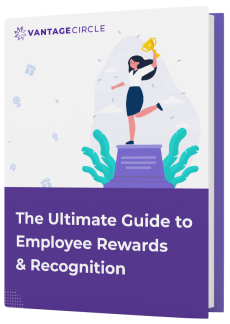The Ultimate Guide On Employee Exit Interviews

The idea of conducting an exit interview may seem like a matter of inconvenience to many.
After all, why invest anything- be it time or resources- for someone who plans to leave your company anyway.
Between the grief of replacing the steady trickle of employees leaving and hiring new talents, conducting such interviews might be the last thing on your mind.
But here's a little inside secret for you. An exit review process is supposed to be for your benefit.
But first, let's take a step back and understand what an exit interview means.
An exit interview is held with an employee who is about to leave a company. Typically, it is conducted to discuss the employees' decision to leave and their experience while working for the company.
Most companies conduct the exit reviews as a "corporate ritual" to get it over with. They don't stop and consider the multiple benefits these interviews can bring to the table- if implemented correctly.
5 Major Benefits Of Conducting The Exit Interviews

Here are some of the many benefits of conducting the exit interviews before employees leave:
Benefit 1: Gain Insights About The Company Culture
A company's culture is built by its employees- the past as well as the present ones. Thus, they are the first to know if anything is actually amiss.
On the other hand, employees can find it difficult to critique the work environment while still working. On the other hand, departing employees are more transparent and frank about their feelings about their experience. Thus, the employee feedback that you get in the exiting process will be extremely genuine.
Benefit 2: Increase Employee Retention
People leave every day. Nevertheless, it is always a shock when it happens.
With an employee's decision to leave for the greener pastures comes the normal grief of finding a suitable replacement while considering the day-to-day impact that an exiting employee will have on the team.
Do you know that the reasons behind departing employees are continually changing? Do you have any data to back up the reasons for the high employee turnover? Is it the job description? Or is the low salary the real dealbreaker?
These are only a couple of the problems that an exit face-to-face interview will help you with.
Benefit 3: Gain Constructive Feedback
When done effectively, data collected through these interviews will help gain valuable insight in the form of feedback. This final form of contribution will prove to be very beneficial in the long run.
Departing employees tend to be more honest and forthcoming in describing the good, the bad, and the ugly. More often, you may find yourself facing some form of negative feedback. Take it with a grain of salt. Look upon this employee feedback that you receive as a learning opportunity to improve upon. Similarly, positive feedback will help you understand the strengths of your company culture.
Benefit 4: Seek "Patterns" In The Exit Interview Data
Don't just conduct these interviews for the sake of it. An effective exit interview process doesn't try to reverse the resignation. It works to seek out the patterns for why good employees leave. These same patterns will help you outline the retention strategies to reduce further turnover in your company.
Benefit 5: Cost-Effective
Generally, exit reviews are easy to conduct, get over fast, don't need a budget, and rewards you with a lot of information. In other words, sort of like a magical boon for your company's human resources department. It is a small investment- of time and resources- which will enable you to reap great rewards.
7 Ways On How To Conduct Effective Exit Interviews
While a departing employee may seem like the last person, you should try to impress, never forget a crucial point. Every exiting employee is the best form of "advertisement" that your company can invest in. They might not be a part of your company anymore, but they will still talk about their experience there.
Thus, it makes sense that you provide a departing employee with a farewell experience that shows your company in a good light. In such cases, employees feel more liberal about giving positive feedback about your company culture.
Preparing for an exit interview can be stressful. However, if you're serious about conducting meaningful exit reviews, consider the following seven pointers:
1. Choose The Right Interview Format

The ease of doing exit reviews should keep both parties in mind. For an interviewer, holding a face-to-face interview is the best bet to get the most out of the meeting.
You can show that you genuinely care about what the exiting employee has to say through a face-to-face interview.
A face-to-face interview will enable the discussion to flow like a conversation. It, in turn, will make the interviewee relax enough to provide you with some valuable employee feedback that you can work with to improve retention. Nothing says goodbye as a warm handshake and a pat on the back.
However, there's a downside to it. Not every exiting employee is likely to feel comfortable with a face-to-face interview. The exit interview process will yield less satisfactory results if the employee doesn't want to be there!
To combat such scenarios, consider offering a departing employee the alternative to a face-to-face meeting. It can be in the form of an online questionnaire or might even be a phone interview.
2. Know What Questions To Ask

It is better to prepare beforehand and know what questions to ask instead of diving in with a bunch of unrelated questions that won't be any good for future analysis. However, make the whole interview appear and sound unscripted, or the meeting's positive vibe will be thrown out the window.
Also, assure the departing employee that the interview is entirely confidential. Their name will nowhere get disclosed while sharing the data collected.
3. Know What Questions To Avoid

No matter your intentions and how much you want to ask them, avoid asking some questions during an exit review. These might be in the line of:
- Questions about specific people or team members
- Issues related to office gossip and work environment
- Downright questions about why they are leaving the company
- Questions that try to change their mind about leaving
Such questions will result in making the employees feel guilty, defensive, or just plain unhappy. Ensure that the last thing a departing employee takes from your company is a positive experience and not a session of feeling cornered and being asked uncomfortable questions.
4. Share The Feedback

To get the most out of an exit review, you must regularly analyze the data collected. Singular employee feedback won't be accurate or valuable. But, data collected from diverse sources can give you real and concise information.
Very often, someone other than the HR department, such as senior leaders, may need access to the employee feedback data. You may notice a pattern or similar issues when conducting several exit reviews in a row. In this situation, you can share the employee feedback with the leadership team and get help from senior leaders on figuring out an action plan. Similarly, you can hire external consultants to understand the patterns and data in a more efficient manner.
5. Keep The Interview Short And Simple

The period of departure is an uncomfortable time for both the employer and the exiting employee.
Whenever possible, the exit review should be led by someone other than the departing employee's supervisor. Your best bet is to have senior leaders from the HR department conduct the interview. Interview in a private location (e.g., a conference room) and keep the conversation short and to the point.
A departing employee will probably not want to get stuck in an hour-long meeting on their last day. Give them the choice of when and how do they want to do their exit reviews. In case of a face-to-face interview, try to keep the conversation open, honest, and to the point.
6. Communicate The Value Of Feedback To The Departing Employee

Remember that some departing employees feel hesitant to share honest responses because they worry that negative feedback may lead to a bad reference.
Let the employee know that you will remove identifying information from their feedback when sharing it with other senior leaders. Give the employee their final paycheck and any required paperwork they need from the company. Then spend the remainder of the interview asking common questions to learn about the employee's decision to leave.
7. Use Survey Tools

Suppose you are keen on obtaining exit interview data relevant to highlighting your company’s problem areas. In that case, your best option is to conduct exit reviews through an online survey tool.
An online survey tool provides a surplus of benefits, such as:
Predefined intelligent questions
You don't have to fumble around about what questions to ask in the exit reviews. An online survey tool makes it easier to get the relevant employee feedback data with a set of predefined questions.
Faster
The time required to complete an online survey is, on average, two-thirds faster than traditional face-to-face interviews. Thus you can save the time wasted on- scheduling the meeting, conducting the interview, manually analyzing the result, and so on.
Quick Analysis
Online survey results can be analyzed quickly and look at the real-time analytics of the exit data collected. Respondents provide their online answers, which are then stored in the cloud for easier review. Thus, the analysis becomes much more straightforward, streamlined, and available immediately to form an action plan.
The 18 Best Exit Interview Questions That You Should Know

Need some help with some useful exit interview common questions? Here are some of the most meaningful questions which you can present before your departing employees:
- How would you describe your working relationship with your manager?
- According to you, what could your manager do to improve the company culture?
- What was the best thing about your day-to-day duties?
- Is there something in your job description that you'd like to change?
- What did you appreciate the most about the company culture?
- Which aspect of the company culture can be improved to create a better workplace?
- Did you have sufficient resources and support available while doing your job?
- Was your job description correctly explained during the hiring process?
- Were you aware of the level of expectations from you?
- Did you receive enough constructive feedback that helped you in your day-to-day activities?
- How can you describe your experience with the company’s employee feedback process?
- Did you feel engaged in our company?
- Did you clearly understand and feel a part of the achievement of the company’s goals?
- Did management help you in achieving your career goals?
- What are the essential qualities you think the company should seek in your replacement?
- Do you think anything should be added or removed from the job description itself?
- What would make you consider working for this company again in the future?
- Would you recommend our company as an excellent place to work with your friends and family?
Exit Interviews Are Good For The Company Culture
One of the best things about exit reviews is how they can give you a chance to see off a person- who was there for you through your struggles- in a heartfelt and meaningful way.
Knowing how you can improve upon that experience further would only be the icing on the cake. Thus, following these seven tactics would be an indispensable resource for providing a hassle-free and smooth interview experience.
Do you know any other ways through which an exit interview process becomes more meaningful? Tell us in the comments below!

Vantage Circle is a simple AI-powered Rewards & Recognition Platform for upgrading your employee experience and engagement for better productivity.





